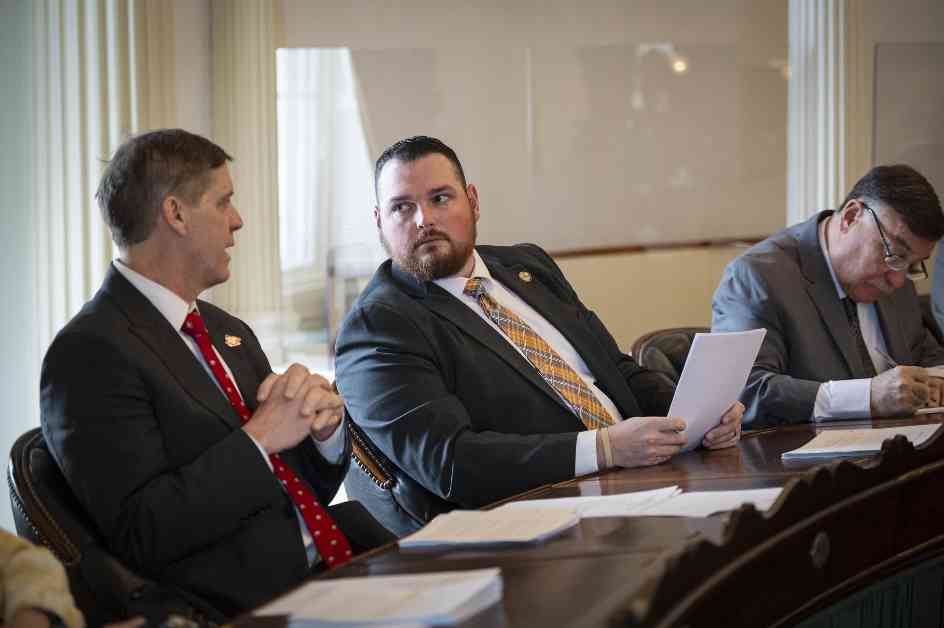Sen. Chris Mattos, R-Chittenden North, center, speaks with Sen. Andrew Perchlik, D/P-Washington, at the Statehouse in Montpelier on Thursday, Jan. 9. Photo by Glenn Russell/VTDiggerNine of the Vermont Senate’s 11 standing committees will have new leaders this biennium and three will be helmed by Republicans, Lt. Gov. John Rodgers announced from the Senate floor Thursday afternoon.
Vermont Senate Committee Leadership Undergoes Major Overhaul
In a significant shake-up, Vermont’s Senate committee leadership is undergoing a major overhaul. With the retirement, death, or defeat of numerous veteran chairs, the state is witnessing a new era of leadership. Following the November election, where Republicans gained ground, the Senate now sees a shift in power dynamics.
New Faces, New Roles
The Committee on Committees, responsible for assigning Senate committee positions, has included fresh perspectives this year. With two new participants, including a Republican lieutenant governor and a Democratic senator, the decisions have been carefully curated. The challenge lies in the limited pool of experienced senators, as a considerable portion of the Senate’s members have joined in the past two years.
Notable Appointments
One of the most significant appointments is Sen. Andrew Perchlik, D/P-Washington, who will now chair the influential Senate Appropriations Committee, succeeding a veteran leader. With various committees seeing new leadership, the landscape of decision-making is evolving.
Partisan Balance and Policy Focus
The Committee on Committees has aimed for partisan equilibrium on key panels, emphasizing bipartisan collaboration. Committees like the Senate Education Committee will play a crucial role in reevaluating the state’s education funding scheme. This balanced approach is reflective of a commitment to thoughtful policy-making and inclusive governance.
Looking Ahead
As the Senate navigates these changes and prepares to tackle pressing issues, the composition of committees signals a deliberate effort towards bipartisanship. With a mix of experienced leaders and fresh perspectives, Vermont’s Senate is poised for a new chapter in legislative decision-making.
Ethan Weinstein contributed reporting.
Take a moment to reflect on the changes happening in Vermont’s Senate and consider the impact of new leadership on policy decisions. How do you think the balance of power will influence the direction of the state’s governance? Share your thoughts and engage in conversations about the future of Vermont’s legislative landscape.










